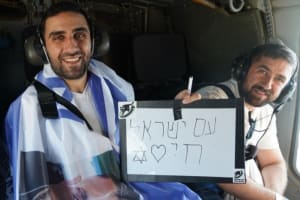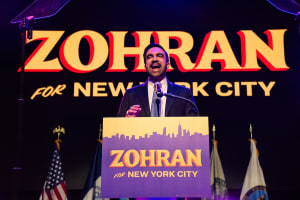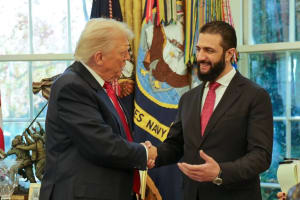Hezbollah leaders reportedly have had facial surgery to conceal identities from Israeli intelligence

Multiple senior Hezbollah commanders have undergone surgical facial reconstruction in Lebanon, Iran, and Iraq to conceal their identities from Israel, the Saudi news channel Al Hadath reported on Sunday.
Several commanders were reportedly injured during the war with Israel. The Iranian regime’s elite Islamic Revolutionary Guard Corps (IRGC) is said to have facilitated the transfer of senior Hezbollah officials for plastic surgeries in Iran and Iraq. Those unable to travel abroad reportedly received facial reconstruction in Hezbollah-controlled clinics in Lebanon.
Given the growing tensions between the Iranian-backed terrorist militia and Israel in recent months, Hezbollah leaders are increasingly concerned that they will be recognized and targeted by the Israeli intelligence and military.
Hezbollah launched an unprovoked rocket and drone attack against northern Israel on Oct. 8, 2023, merely a day after the Hamas-led massacre of 1,200 Israelis and the kidnapping of 251 people in southern Israel. Dozens of Israelis were killed and some 60,000 were displaced from their homes in northern Israel as a result of the Hezbollah attacks, which lasted for over a year.
After initially focusing on Hamas in Gaza, the Israeli military and intelligence eventually responded with a counteroffensive against Hezbollah in the summer 2024.
In late July last year, the Israeli military eliminated the top Hezbollah military commander Fuad Shukr in the Lebanese capital, Beirut. Regional analysts described Shukr as Hezbollah’s most senior military commander and the right-hand man and adviser to the group’s leader, Hassan Nasrallah. The strike marked the beginning of a series of devastating blows that Israel inflicted on Hezbollah and its leadership.
In September 2024, the Israeli Air Force (IAF) eliminated several top commanders of Hezbollah’s elite Radwan Force, including its commander Ibrahim Aqil, in an airstrike guided by precise Israeli intelligence.
The Israeli military’s then-Chief of Staff, Lt.-Gen. Herzi Halevi emphasized the importance of the strategic strike on many of Hezbollah’s top commanders.
“The Hezbollah commanders we eliminated today planned an ‘October 7’ on the northern border for years. We reached them and we will reach anyone who threatens the security of the citizens of the State of Israel,” Halevi stated.
Around the same time, some 3,000 Hezbollah commanders and operatives were injured, and many were killed, when their pagers exploded in an unprecedented operation attributed to Israel's intelligence agency, the Mossad.
In late September, the IAF eliminated Hezbollah’s top leader Hassan Nasrallah and multiple other top Hezbollah commanders when Hezbollah’s central headquarters in Beirut was bombed. At least one senior Iranian general attending the meeting of the Hezbollah commanders was also killed in the Israeli aerial strike.
“The Israel Defense Forces carried out a precise strike on the Central Headquarters of the Hezbollah terror organization - that served as the epicenter of Hezbollah's terror,” an IDF spokesperson announced after the strike.
By the end of 2024, the Israeli military had also eliminated several thousand Hezbollah terrorists and degraded most of the terror militia’s once vast rocket and drone arsenal, which threatened the Jewish state’s national security.
In November 2024, a severely degraded Hezbollah reluctantly agreed to a ceasefire with Israel. The American-brokered ceasefire calls for the withdrawal of Hezbollah forces from southern Lebanon and the disarmament of the Iranian-backed terrorist militia.
While Hezbollah is seriously weakened, it is still a powerful militia that wields influence across Lebanese society. They have so far refused to disarm and are instead seeking to regroup and rearm following its significant military losses against Israel.
The U.S. undersecretary for terrorism and financial intelligence, John Hurley revealed on Friday that Iran had transferred some $1 billion to Hezbollah, which is widely seen as Tehran’s most powerful terrorist proxy.
“Even with everything Iran has been through, even with the economy not in great shape, they’re still pumping a lot of money to their terrorist proxies,” Hurley said.
U.S. ambassador to Turkey and special envoy for Syria, Tom Barrack, recently warned that Hezbollah is still threatening the Jewish state.
“Thousands of missiles in southern Lebanon still threaten Israel,” Barrack assessed. “It makes no sense that there is no dialogue between the two countries. Lebanon has no time to waste. It must consolidate its weapons. Israel may respond in Lebanon depending on developments."

The All Israel News Staff is a team of journalists in Israel.
You might also like to read this:















